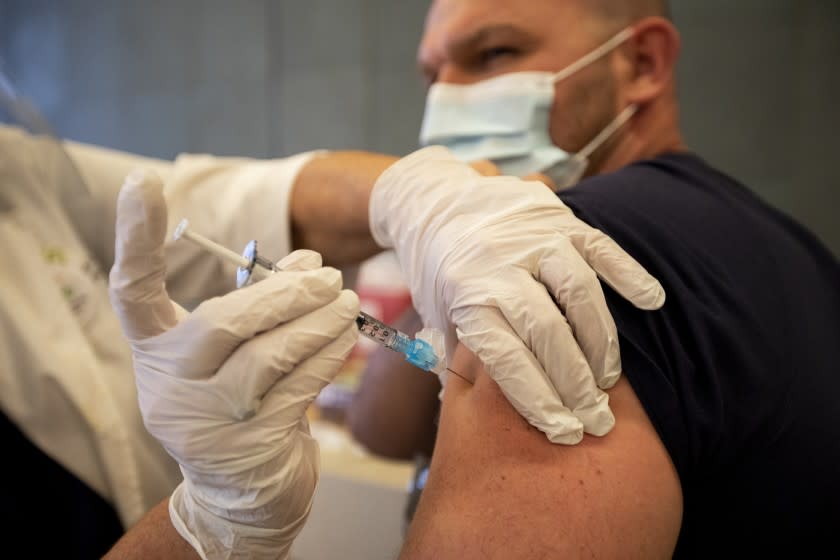Letters to the Editor: Vaccine skeptics are the victims of an anti-science cottage industry

To the editor: Kira Kieffer rightly points out that not all vaccine-hesitant folks are anti-science. But she does not address a major factor of vaccine hesitancy: false and misleading information spread by the anti-vaccine lobby, which deserves to be labeled as anti-science.
People like Joseph Mercola, Andrew Wakefield, Del Bigtree and Robert F. Kennedy Jr. have made a cottage industry out of scaring people about vaccines, then taking advantage of them once they are scared. A few unethical doctors such as pediatrician Bob Sears do the same.
People may not know the origin of the misinformation, but it still impacts them. I hope Kieffer details in her upcoming book how such people spread misinformation and make vaccine hesitancy far worse than any normal level of anxiety that folks would feel for what is a safe and effective way to prevent disease.
Absent the anti-science fearmongering, vaccine hesitancy wouldn't be the threat to public health that it is today.
Richard Green, Ventura
..
To the editor: Kieffer's piece about vaccine skeptics continues your excellent coverage of the scientific aspects of the pandemic.
It is critical for people to understand that we now have these coronavirus vaccines because of long-term support of scientific research, specifically the search for a generic flu vaccine and work on specific coronavirus threats before the appearance of COVID-19.
People need to understand that these vaccines sometimes cause a few days of flu-like symptoms. This is the body "gearing up" an assembly plan for antibody production when the real virus shows up. The discomfort is mild compared to the symptoms of a real infection.
The story of these vaccines is a helpful lesson on how science works, a method based on constant testing, correction of errors and revision of conclusions.
Margaret Hamilton, Portland, Ore.
..
To the editor: It should be plainly obvious to everyone by now that taking a vaccine against COVID-19 is a good thing. Those who disagree will not be convinced by any accommodation that we make.
There is a strong anti-science part of the population, and unfortunately, it is not limited to vaccines. I have found that belief trumps fact, every time, and the fact that our president has minimized the pandemic fuels such beliefs.
It is time to move on and not let progress be derailed by the few who are unwilling to accept reality because their emotional coherence depends entirely on wishful thinking and self-deception.
Art Wahl, Port Hueneme
..
To the editor: So we shouldn't brand vaccine skeptics as anti-science. I'm sure all the round-Earth-hesitant would agree.
Allen Simmons, Long Beach
This story originally appeared in Los Angeles Times.
